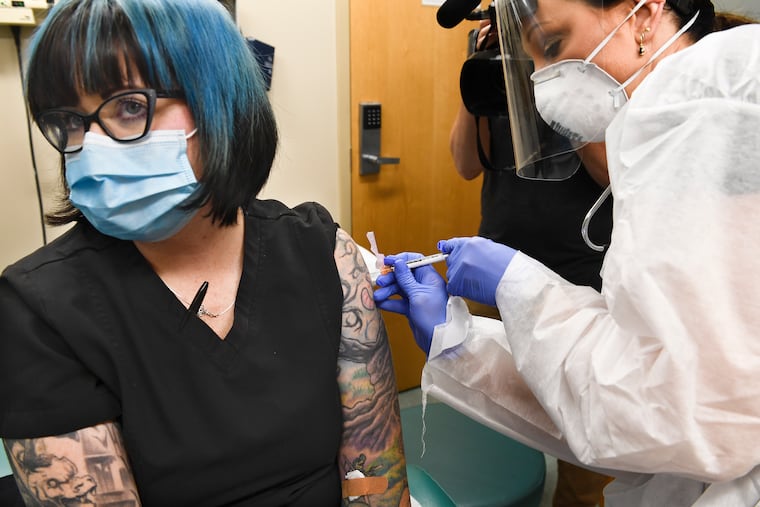How to join a coronavirus vaccine clinical trial
The first step for many trials is to sign up at a national registry, based in Seattle.

If you want to be among the first to get a vaccine for the coronavirus, joining a clinical trial might be your best bet. Vaccine makers are going to need thousands of volunteer testers over the next few months.
As with any clinical trial, these new vaccines are experimental, so they may not work. And thousands may also be in the placebo group, so they will have no extra protection against the virus. There’s also a risk of nasty side effects, but clinical trial participants may feel good about doing something concrete to fight COVID-19.
Francis Collins, director of the National Institutes of Health, acknowledged that sacrifice last week during the first meeting of a National Academy of Medicine committee tasked with helping determine who should get priority for new coronavirus vaccines. While many agree that health-care workers and those at high risk for medical reasons should get the first doses, Collins said he thought those who have joined vaccine trials and wound up in placebo groups should also be considered as well.
» READ MORE: Moderna launches pivotal coronavirus vaccine trial; officials expect results by November
The gateway to several of the trials is the COVID-19 Prevention Network (CoVPN) at Fred Hutchinson Cancer Research Center in Seattle. It brings together several long-standing clinical trial networks and is working with the federal government’s Operation Warp Speed. People who want to join a trial can register online with the network. It is developing a Spanish-language site, a spokesperson said.
Each trial will be looking for 30,000 participants who represent a variety of ages, races, and medical conditions. Once people register, studies will contact them about joining. Pharmaceutical companies may be working with academic sites, commercial trial sites, or less traditional centers to administer the vaccines.
Close to 200,000 people have registered since registration opened on July 8.
The Phase 3 trial of the two-dose shot from Moderna started this week. Penn Medicine is participating in that trial, as well as in one at an earlier stage for a vaccine from Plymouth Meeting-based Inovio. The Moderna trial also is working with the University of Pittsburgh Medical Center, Hackensack University Medical Center, and Rutgers New Jersey Medical School in Newark.
Ian Frank, an infectious disease doctor who is heading the Moderna trial at Penn, said the study will be looking for participants at relatively high risk of contracting the coronavirus and having severe symptoms. That could be people with chronic health problems that worsen risk but also people who live in neighborhoods with high rates of disease. It will also include essential workers with a lot of contact with the public and people who don’t wear masks consistently. Penn’s enrollment target is 750.
Focusing on recruiting people more likely to get infected, Frank said, is “the way we’re going to figure out whether this vaccine works.”
AstraZeneca’s vaccine is expected to start its trial in August. A Johnson & Johnson candidate could begin testing in September, and Novavax is slated to begin its trial in October.
Frank said Penn is likely to participate in other trials as well, but he couldn’t name them yet. He expects that the trial will enroll quickly and sequentially, so participants are unlikely to have a choice of trials.
Pfizer is not part of the COVID-19 Prevention Network. It plans to independently test its vaccine on another 30,000 volunteers starting later this summer. You can learn more about its trial at clinicaltrials.gov. The closest participating centers are in Baltimore and New York City.
This story contains information from the Associated Press.